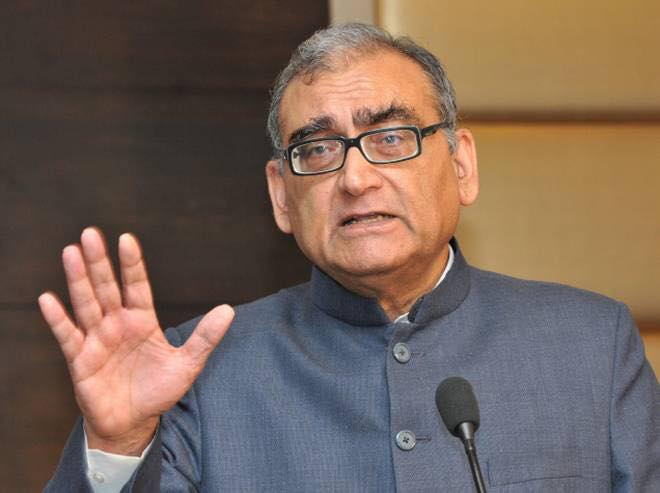Elections are being held for 5 state assemblies in India, and parliamentary elections are also due in May next year. Speculation is intense as to who will win, Congress, BJP or some other parties.
However, a much more crucial question, but which is never discussed, is whether the system of parliamentary democracy is at all suited to India, and if not, what is the alternative, and how is it to be achieved ?
There is no doubt in my mind that parliamentary democracy and the present system and state of affairs in India cannot continue for long as they are entirely unsuited to our country. Whether BJP wins or Congress or any other party, it will make no difference to the lives of our people. Let me explain.
Our national goal must be to transform India into a modern, highly industrialised state with our people enjoying a high standard of living. We have two of the three things required for such transformation, viz (1) a huge pool of technical talent in the form of thousands of bright engineers, technicians, scientists, managers, doctors etc ( our IT engineers are largely manning Silicon Valley in California, and American Universities are full of professors in science, maths and engineering departments ) (2) immense natural resources ( India is not a small country like England or Japan but a sub continent ).
However, there is a third requirement, which is struggle for transformation by a broadly united people, which unfortunately is missing.
It is this third, therefore, on which we must focus.
Unfortunately, the system of parliamentary democracy which we have adopted in India largely runs on the basis of caste and communal vote banks. Casteism and communalism are feudal forces which divide our people and keep us backward. They must be destroyed if we are to progress, but parliamentary democracy further entrenches them.
Historically, all great transformations are the work of the masses, who are the real creators of history. All great modern revolutions, the British ( in the 17th century ), the American ( from 1775 to 1781 ), the French ( 1789 ), the Russian (1917) and the Chinese ( which culminated in 1949 ) were the work of the masses.
The problem in India, however, is this : how can we rely on the Indian masses when they are mostly stupid, casteist, communal and superstitious ? How can we rely on them when they are deeply divided on the basis of caste, religion, language, race or region ? How can we expect great deeds from them when to many cow protection, ghar wapasi and building Ram Mandir are more important than abolishing poverty, unemployment, child malnourishment, lack of healthcare and good education etc ?
This is the dilemma genuine patriots in India are faced with. On the one hand we must rely on the Indian masses for achieving the great historical transformation of our country into the modern, scientific era, on the other hand reliance on the masses means reliance on feudal backward people whose minds are full of casteism and communalism.
How is the contradiction to be broken ?
To my mind it can be done in only one way, though it will take a lot of time and patience to achieve :
We must first patiently explain to the small, patriotic, modern minded section of our intelligentsia that we must have as our goal establishment of a highly industrialised country with our people having a high standard of living. In other words, we must first educate the ‘educated’ in our country.
Intellectuals are the eyes of society, and without intellectuals a society is blind. Unfortunately most of the so called ‘intellectuals’ in India today ( academics, writers, mediapersons, etc ) are not genuine intellectuals but pseudo-intellectuals, their minds full of arrogance, bookish knowledge and what I call ‘gobar’ ( cow dung ). But there is a small minority among them who are sincere, modest and with genuine desire to learn. We must focus on them, and educate them, for they will be the leaders in the times to come.
However, since great historical transformations are the work of the masses, we have to patiently wait until from their own experience the masses recognise their true leaders, and unite behind them. Presently most of the agitations in India are either casteist like that of the Patels or the Jats or Dalits, or communal like building the Ram Mandir. The farmers agitation, though cutting across caste and communal lines, has no leaders with scientific minds, and is therefore bound to fail.
Till the masses learn from their own experience, the small number of genuine, patriotic, modern minded intellectuals must keep patiently spreading correct, scientific ideas among the people who can be influenced, and wait till the time is ripe. They must be like Madame Defarge in Charles Dickens’ novel ‘ A Tale of Two Cities ‘ who told her despondent husband Defarge to be patient. Lightning no doubt takes a split second to strike the ground, and an earthquake to spread devastation, but it takes a lot of time to build that lightning or that earthquake

